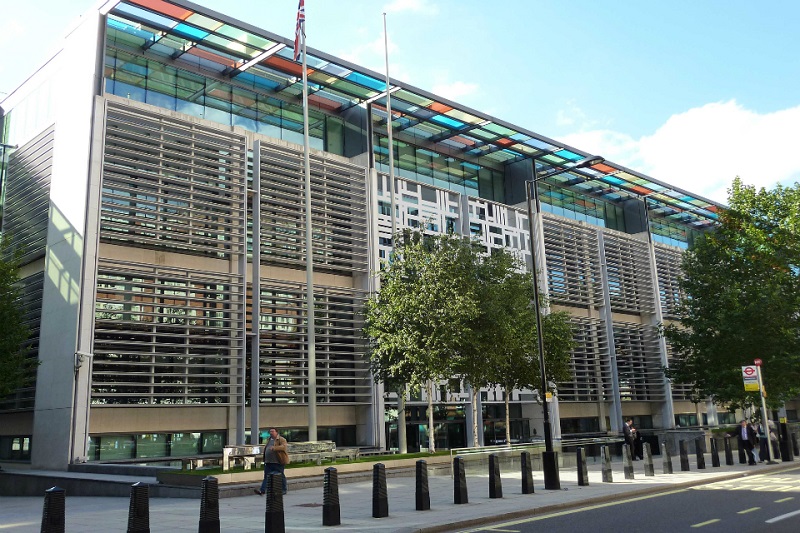The industry has given a mixed response to news that the Government has updated its plans for Biodiversity Net Gains that effectively see a further delay in imposing targets on developers.
Under the revised timetable, developers in England will be required to deliver 10% “Biodiversity Net Gain” from January 2024 onwards when building new housing, industrial or commercial developments meaning by law they must deliver a net positive for the local environment, for example by creating new habitats and green spaces.
Biodiversity Net Gain for small sites will be applicable from April 2024, and implementation for Nationally Significant Infrastructure Projects is planned for 2025.
Biodiversity Net Gain was introduced through the Environment Act and is fundamental in helping the country meet the target to halt the decline in species abundance by 2030, while helping create more beautiful communities and deliver new homes. To support the implementation of Biodiversity Net Gain, the government has committed over £15 million to assist Local Planning Authorities prepare. Many housing developers are also already successfully creating Biodiversity Net Gain through their developments.

The announced delayed will be welcomed by small and medium sized developers, said the House Builders Association (HBA), the housing arm of the National Federation of Builders (NFB) It has been the most prominent supporter of BNG and hopes that its five years ‘building in biodiversity’ campaign can now be thoroughly explored for implementation.
However, BRE states that following the decision to drop energy efficiency targets in the Private Rented Sector, delays to the phasing out of fossil fuel boilers and the abolition of the Energy Efficiency Task Force, this latest news characterises a deeply concerning trend in the Government’s approach to decarbonisation across the UK’s built environment. More and faster, not less and slower, action is needed if we are to meet the 2050 goals.
“We have worked incredibly hard on strategies to ensure BNG can work in practice and the announced delay gives us a chance to work more closely with the Government to implement onsite solutions,” said Richard Beresford, Chief Executive of the NFB.
“By building in biodiversity, we can ensure development acts to grow habitats and stimulate species recovery, rather than acting as a block on wildlife corridors via offsetting credits.”
After a five-year campaign on onsite solutions and speaking to the Environment Committee during the examination of the Environment Bill before it became an Act, the HBA wrote to ministers in July 2023 with their concerns that BNG was going to harm SMEs the most because they were unable to set enough land aside to deliver the narrow vision of habitats set out by the BNG calculator.
By the end of November, The Government will publish all guidance and the regulations including:
- the statutory biodiversity metric, critical for calculating the correct biodiversity gain
- the draft biodiversity gain plan template, which will help developers prepare for what they will need to complete during the planning application stages
- the Habitat Management and Monitoring Plan template, which will set out how the improved significant on-site and off-site habitats will be managed for the long term
- a package of Biodiversity Net Gain guidance that sets out further advice for landowners, developers, and Local Planning Authorities around their role and responsibilities in delivering mandatory Biodiversity Net Gain
These materials will ensure that developers and planning authorities have access to the necessary tools and information to effectively implement Biodiversity Net Gain in January 2024, ensuring they deliver the homes that the country needs while benefitting nature and local environments.
But BRE’s CEO Gillian Charlesworth responded: “Our industry has been working hard to prepare for the inclusion of mandatory Biodiversity Net Gain (BNG) rules and the reported delays threaten to cause prolonged uncertainty for some major projects – and the loss of habitats which would otherwise be developed.
“We urgently need clarity from government on the implementation of BNG so that industry can successfully deliver these vital environmental improvements at the scale required.
“BRE has long supported the development of standards that restore and protect biodiversity. As such, the latest versions of BREEAM UK New Construction, BREEAM Infrastructure and the Home Quality Mark will continue to have BNG at the heart of their land use and ecology criteria which will improve local biodiversity by increasing the quality, connectivity, density and coverage of natural spaces.”
Trudy Harrison, Biodiversity Minister said Biodiversity Net Gain will ensure new developments work for both wildlife and people. “We will create nature-rich places whilst ensuring communities get the new homes and infrastructure they need,” she added
“The updated timetable and guidance we are setting out today will help smooth the transition ahead of the Biodiversity Net Gain going fully live in January 2024.”
Rico Wojtulewicz, Head of Housing and Planning Policy at the HBA and NFB, claimed the evidence is clear - if you build in biodiversity, you improve biodiversity outcomes and our proposal achieves this in practice, rather than going down the offsetting route.
“This means we build habitats into the fabric of the development and site design, potentially having it led by local policies, such as Supplementary Planning Document (SPD),” he continued.
“The HBA has a guidance document on some of the ways we can achieve this, which ministers in DEFRA and DLUHC were sent. It sets out a vision for making BNG world leading and hope it inspires a conversation we have been having for half a decade.”




















